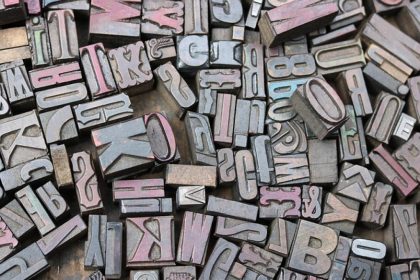In today’s digital age, having a strong online presence is crucial for any business or individual looking to attract and engage with their target audience. Search engine optimization (SEO) plays a significant role in determining how easily your website can be found by users on search engines like Google. While most people focus on keywords and metadata to improve their SEO rankings, the quality of the images on your website also plays a vital role in enhancing your SEO efforts.
Importance of High-Quality Images in SEO
High-quality images not only make your website visually appealing but can also help improve your website’s SEO rankings. When users conduct image searches on search engines, high-quality images are more likely to appear at the top of the search results. This can drive more traffic to your website and increase your online visibility.
Search engines like Google also consider the relevance and quality of images when ranking websites. By using high-quality, relevant images on your website, you can improve the overall user experience, reduce bounce rates, and increase the amount of time users spend on your site. This, in turn, can have a positive impact on your SEO rankings.
The Impact of Low-Resolution Images on SEO
On the flip side, using low-resolution images can harm your SEO efforts. Low-quality images can make your website appear unprofessional and can negatively impact the user experience. Users are more likely to click away from your site if they encounter blurry or pixelated images, leading to higher bounce rates and lower engagement metrics.
From an SEO perspective, search engines may penalize your website if it contains a large number of low-quality images. Search engine algorithms are designed to prioritize websites that provide a positive user experience, and low-resolution images can signal to search engines that your website may not offer valuable or relevant content. This can result in lower rankings on search engine results pages (SERPs) and fewer organic visitors to your site.

Tips for Using High-Quality Images to Improve SEO
Now that we understand the importance of high-quality images in SEO, let’s explore some tips on how you can leverage images to enhance your website’s SEO performance:
- Optimize Image File Names: Before uploading images to your website, make sure to optimize the file names using descriptive keywords related to the image content. Search engines use file names to understand the context of an image, so using relevant keywords can help improve your SEO rankings.
- Use Alt Text: Alt text, or alternative text, is a brief description of an image that appears if the image fails to load on a webpage. Including descriptive alt text for your images not only improves accessibility but also provides search engines with valuable information about the image content, which can boost your SEO rankings.
- Compress Images: Large image files can slow down your website’s loading speed, which can negatively impact your SEO rankings. Use image compression tools to reduce the file size of your images without compromising quality. This can help improve your website’s performance and user experience.
- Optimize Image Sizes: Ensure that your images are appropriately sized for the web to prevent them from appearing distorted or pixelated. Find the right balance between image quality and file size to enhance user experience and SEO performance.
- Create Image Sitemaps: Including images in your XML sitemap can help search engines discover and index your images more efficiently. Create a separate image sitemap or include image tags in your existing sitemap to improve the visibility of your images in search results.
The Bottom Line
Incorporating high-quality images into your website and avoiding the use of low-resolution images can have a significant impact on your SEO rankings and overall online visibility. By following the tips outlined in this post, you can optimize your images for search engines, enhance the user experience, and attract more organic traffic to your website. Remember, when it comes to SEO, every little detail matters, so pay close attention to the quality and relevance of the images you use on your website.









